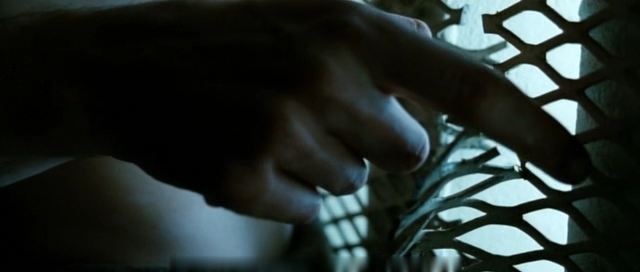HUNGER vs the infotainment telesector
by Steven Boone + Ryland Walker Knight
[A note: Some of you out there may already be hip to this video through its appearance on SpoutBlog last week. If it's news to you, feel free to click that link and see it there. We embed it here because, besides the obvious friend trumpeting, well, we think it's great. It's the kind of stuff we would like to see more of here (and elsewhere on this interweb). Below you can read Steve's typically on-point intro, which we, perversely, of course, have made our follow-up context for the images above. We've done this for the simple fact that we like the idea that their relationship can be switched, flipped, overlaid, uprooted, found and forged in new ways. We find this fact to be self-evident. And, as members of this fancy web, a right of (even a will to) our power. We know this power is miniscule; we do what we can.]

In the 1996 book Jihad vs. McWorld (1), political science braniac Benjamin Barber coined the term “infotainment telesector” to describe the conglomerates controlling print journalism, television, music, film and advertising. He could have just said, “the media,” but noooo. Infotainment telesector sounds like something from ’50s sci-fi, but its weird, metallic ring is just about right for 2009. In a social climate where no one bats an eyelash at baseball stadiums named after rapacious banks, we are living out previous eras’ dystopian visions of the future. It’s just hard to tell because everybody’s so animated, far from dehumanized, and we have a participatory comfort toy Orwell and the others couldn’t predict,the Internet (2).
In the following video appreciation of the acclaimed art film Hunger, I don’t deal with Barber’s work at all but use his clanky term to evoke what British artist Steve McQueen’s film is up against: A metronome set by the infotainment telesector that nearly everybody, even those artists who proclaim themselves radical (or disengaged) outsiders, marches to. It’s a spectacular con, and so many of us are falling for it, but not McQueen. He’s in a minority of filmmakers worldwide who let their images and sounds move at a natural pace.
What the hell am I talking about? What’s a “natural” pace?

(1) Read the original 1992 article by Barber by clicking here and heading over to The Atlantic's surprisingly well archived internet back catalogue.
(2) You gotta love that Andy Rector put this Daney-tennis-Godard-slaphappy-Lewis bit together right around the same time.




Brilliant work. Much appreciated. Thanks.
ReplyDeleteThank you, Catherine. We try. When my stuff makes it into Vinyl, I hold my breath, as I'm aware that Ryland's readers are terrifyingly smart. Ah, exhale.
ReplyDelete